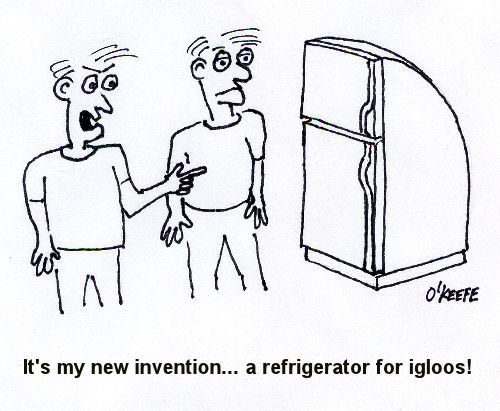|
When Thomas A. Edison was a young man in the late 1860s, he made the same mistake that many of today’s novice inventors make: he concentrated all of his efforts on developing and patenting an invention without first doing a thorough market study to see if it had a good chance of being a commercial success. Edison’s first patented invention was a legislative vote recorder (US Patent No. 90,646). The device was surprisingly innovative, enabling legislators to cast their votes in record time. It made the entire voting process far more efficient than the system of roll call voting that was employed at the time. Edison had no doubt that it would be a commercial success. Who in their right mind wouldn’t want something that was efficient and saved time? Pumped full of optimism, Edison took the embodiment of his invention to Washington, D.C. to demonstrate it before a congressional committee. He was shocked to find that no one on the committee was impressed with what he’d done. And to add insult to injury, the Chairman of the committee could not resist saying, “If there is any invention on Earth that we don’t want down here, that is it.” Swallowing his pride, Edison was forced to abandon his invention. If Edison had taken the time to study the market prior to proceeding with his invention, he would have discovered that it would be a foolish waste of time and money to pursue development of the vote recorder past the preliminary concept phase. But the political process was not something he was familiar with, much less the slow pace of roll call voting that Congress employed. He was unaware that this political maneuvering enabled politicians to easily filibuster bills and make deals behind the scenes in order to sway votes. He would find out too late that his was a notion they did not care to support. After his vote recorder demonstration crashed and burned, Edison vowed to only work on inventions that people actually wanted to buy. He ultimately created the world’s first industrial research laboratory that pumped out thousands of inventions that made him a millionaire and created a technological legacy that remains with us today. _________________________________________________________________ |
Tags: intellectual property, invention, inventor, market study, patent, product development, Thomas Edison





I have worked with many inventors and one of the first things that I asked is whether they have a depth of knowledge in the field in which they have invented. If they say no, then I often advise them to become an expert in the field in order to assess marketability. Edison’s arrogance is that of many inventors who see a problem to be solved from a distance and decide by “solving” the problem they will create a market. One inventor came to me with a microwave popcorn bag invention. Her desire was to sell the idea to one of big microwave popcorn producers. I liked the invention and I asked her if she knew how popcorn bags were made? She did not. She could not assess the viability of her invention without knowing how it might be incorporated into the automation that existed on the floor of the manufactures that she was courting. There are many barriers to innovation. Identifying the barriers on the front end can save inventors a great deal of time and effort.
Philip:
While becoming an expert in an area seems like a great idea, having some distance can also help. I guess it’s the old forest for the trees example. So many engineers have such a vast knowledge of every tree it may be difficult to see the entire woods. In addition to knowing everything about your subject area, having outside market research that is not “in love” with your concept to create an independent study is a very smart way to save yourself time and money in a product launch.
Being able to communicate the solution to the people who are looking for a solution turns the selling process into a help session.
Really understanding the problem before creating the solution is the key, isn’t it? Thanks for your thoughtful post.
Chris Brown
Thanks for your input Henry and Chris!
I agree with both Henry and Chris. I am a nurse inventor and am very aware of problems in patient care that need better solutions. Although I understand completely that side, I wouldn’t consider myself to be the same level of “expert” on the manufacturing side. I think it takes more than one expert alone to bring a top selling product to market.
Thanks, Sarah. Medical device manufacturing can get quite involved and expensive due to regulatory requirements.
Hi Phillip,
This was an excellent article. What I’ve found in promoting my own company is that the best way to know if your product or service is a winner is to get out there and demonstrate it to people. This has saved me thousands of dollars in focus groups and other more traditional marketing research avenues. I beat my head against the pavement for about two years before I had a client who was honest enough to tell me that I was devaluing my services by incorrectly positioning it and not charging more! I wish I had read more articles like yours before I began my journey down the patent road – I’m now having second thoughts about trying to patent a business methodology. In your experience, how successful are business processes becoming patented considering that a web-based application can be built upon it and it does in fact product a tangible, useful result?
Alicia, I really can’t really answer your question. I would like to invite any patent attorneys that are reading your post to weigh in on that. Thanks!